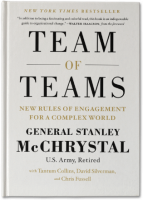-
![[image]](https://www.balancer.ru/cache/sites/org/wi/wikimedia/upload/wikipedia/commons/thumb/8/88/Embassy_of_the_Russian_Federation_in_Washington,_D.C.jpg/128x128-crop/220px-Embassy_of_the_Russian_Federation_in_Washington,_D.C.jpg)
ПВО Ирана
Теги:
m.0.> Ну и иде они применяются, в горной местности основной территории страны или на побережье одноименного залива?
Будущие позиции С-300 в Иране волонтёры уже отыскали на вики-мапии Где бы их не поставили связь должна быть скрытной и устойчивой. Под устойчивой имеется в виду, как израилетяне убили иранского учёного, сирийского генерала
Где бы их не поставили связь должна быть скрытной и устойчивой. Под устойчивой имеется в виду, как израилетяне убили иранского учёного, сирийского генерала


Будущие позиции С-300 в Иране волонтёры уже отыскали на вики-мапии
 Где бы их не поставили связь должна быть скрытной и устойчивой. Под устойчивой имеется в виду, как израилетяне убили иранского учёного, сирийского генерала
Где бы их не поставили связь должна быть скрытной и устойчивой. Под устойчивой имеется в виду, как израилетяне убили иранского учёного, сирийского генерала
"Черные мотоциклисты" застрелили физика, занятого в ядерной программе Ирана
Неизвестные на мотоциклах убили иранского ученого, задействованного в ядерной программе страны. Полуофициальное студенческое информагентство ISNA сообщает, что 35-летний Дариуш Резаи, профессор физики, был убит в субботу возле собственного дома. Супруга ученого была ранена. // newsru.co.il
Эдвард Сноуден: "АНБ знало о том, что израильский спецназ убил сирийского генерала"
Американская разведка установила из данных радиоперехвата, что израильские спецслужбы ответственны за убийство высокопоставленного сирийского офицера, который был близким советником президента Башара аль-Асада. // podrobnosti.biz

m.0.>> Ну и иде они применяются, в горной местности основной территории страны или на побережье одноименного залива?
Runoske> ... позиции С-300 ...Где бы их не поставили связь должна быть скрытной и устойчивой.
А вода мокрая. Обеспечивать связь по каналам ПВО с помощью тойот в горах замаетесь. Проще туда волоконную времянку протянуть, тем более, что позиционные районы как бы знатоками уже определены. Или стандартную аппаратуру передачи данных на машинах-ретрансляторах или поставить стационарные. А скрытность - после нескольких развед. полетов израильских / неопознанных объектов вблизи зоны ПВО Ирана местоположение этих тойот будет тут же определено средствами РТР. Да и скрыть сами машины комплекса 300-го даже в оптике из космоса не просто.
m.0.>> ... Под устойчивой имеется в виду, как израилетяне убили иранского учёного, сирийского генерала
Это не в тему.
Runoske> ... позиции С-300 ...Где бы их не поставили связь должна быть скрытной и устойчивой.
А вода мокрая. Обеспечивать связь по каналам ПВО с помощью тойот в горах замаетесь. Проще туда волоконную времянку протянуть, тем более, что позиционные районы как бы знатоками уже определены. Или стандартную аппаратуру передачи данных на машинах-ретрансляторах или поставить стационарные. А скрытность - после нескольких развед. полетов израильских / неопознанных объектов вблизи зоны ПВО Ирана местоположение этих тойот будет тут же определено средствами РТР. Да и скрыть сами машины комплекса 300-го даже в оптике из космоса не просто.
m.0.>> ... Под устойчивой имеется в виду, как израилетяне убили иранского учёного, сирийского генерала
Это не в тему.


Runoske> тойоты среди гражданского транспорта легко скрыть, они ничем не отличаются.
Вообще то это не в тему, но - отличаются, и в первую очередь - наличием громоздких антенн, которые никак не спрячешь. Ну и детский вопрос - откуда в чистом поле / горах колонны гражданских машин, среди которых Ваши тойоты? Примитивные фантазии.
Вообще то это не в тему, но - отличаются, и в первую очередь - наличием громоздких антенн, которые никак не спрячешь. Ну и детский вопрос - откуда в чистом поле / горах колонны гражданских машин, среди которых Ваши тойоты? Примитивные фантазии.


Грач> иншалла ............................


Команда из команд
Оригинал взят у kneejnick1 в Команда из команд Отрывок из новой книги (2015 года) генерала в отставке (подал в оставку после его нелестных высказываний озвученных в… // nortwolf-sam.livejournal.com

Грач>> иншалла ............................
Runoske> Команда из команд - nortwolf_sam
интересная ссылка, спасибо
Runoske> Команда из команд - nortwolf_sam
интересная ссылка, спасибо



Runoske> Команда из команд - nortwolf_sam


Team of Teams Quotes by Stanley McChrystal
79 quotes from Team of Teams: The Power of Small Groups in a Fragmented World: ‘In complex environments, resilience often spells success, while even the ... // www.goodreads.com
- “In complex environments, resilience often spells success, while even the most brilliantly engineered fixed solutions are often insufficient or counterproductive.”
- “Although we intuitively know the world has changed, most leaders reflect a model and leader development process that are sorely out of date. We often demand unrealistic levels of knowledge in leaders and force them into ineffective attempts to micromanage.”
- “In battle, refusal or hesitation to follow orders can spell disaster. But at the same time, the rigid hierarchy and absolute power of officers slows down execution and stifles rapid adaptation by the soldiers closest to the fight.”
- “The world of “many to many” has produced tremendous gains in some sectors, but these gains have come at a high cost in others—specifically those that require coordination at scale.”
- “Specifically, we restructured our force from the ground up on principles of extremely transparent information sharing (what we call “shared consciousness”) and decentralized decision-making authority (“empowered execution”).”
- “Complex systems are fickle and volatile, presenting a broad range of possible outcomes; the type and sheer number of interactions prevent us from making accurate predictions.”
- “As the world grows faster and more interdependent, we need to figure out ways to scale the fluidity of teams across entire organizations: groups with thousands of members that span continents, like our Task Force. But this is easier said than done.”
- “Fast-forward to March 17, 2014, when the Los Angeles Times was the first news company to break a story about a nearby earthquake. Their edge? The article was written entirely by a robot—a computer program that scans streams of data, like that from the U.S. Geological Survey, and puts together short pieces faster than any newsroom chain of command could. This program earned the paper a few minutes of lead time at most, but today, those minutes are critical.”
- в сложных условиях маневренность успешнее самых лучших фиксированных решений
- часто от руководителей звеньев ждут доскональных знаний деталей и требуют неэффективного микро-администрирования
- невыполнение приказов может привести к катастрофе. Но в то же самое время жёсткая иерархия замедляет и душит быструю адаптацию солдатов на переднем крае
- связь многие-ко-многим произвела огромные успехи в некоторых секторах, но большой ценой. Особенно там, где большой масштаб координации
- перестроили с нуля наше ведомство на принципах чрезвычайно прозрачного обмена информацией и децентрализовали полномочия принятия решений
- нагромождённые системы переменчивы, непостоянны и неусточивы
- по мере того, как в быстро изменяющемся мире растёт взаимозависимость, мы начали искать способы масштабировать манёвренность малых команд до уровня всей организации


Россия возвращает С-300 в Иран
Иран снова сможет получать российские С-300. Поставки зенитных ракетных систем были прерваны в 2007г. в знак солидарности по отношению к США. Тогда у Москвы и Вашингтона намечалась «перезагрузка». Контракт был остановлен, когда готовый продукт уже почти был отправлен. Сумма договора сводилась к 800 миллионам долларов.



США воспользуются правом вето в СБ ООН при попытке России продать Ирану Су-30
США воспользуются правом вето в СБ ООН при попытке России продать Ирану Су-30 // www.rosbalt.ru

Грач> США воспользуются правом вето в СБ ООН при попытке России продать Ирану Су-30
а что самолёты для Ирана попадают под санкции ООН?
а что самолёты для Ирана попадают под санкции ООН?


Грач>> США воспользуются правом вето в СБ ООН при попытке России продать Ирану Су-30
с.т.> а что самолёты для Ирана попадают под санкции ООН?
Резолюция 1929 от 2010го года.
с.т.> а что самолёты для Ирана попадают под санкции ООН?
Резолюция 1929 от 2010го года.
States are prohibited from selling or in any way transferring to Iran eight broad categories of heavy weapons (battle tanks, armored combat vehicles, large caliber artillery systems, combat aircraft, attack helicopters, warships, missiles or missile systems). States are similarly prohibited from providing technical or financial assistance for such systems, or spare parts. States are also to exercise vigilance and restraint in supplying any other arms or related materiel to Iran.


Грач>>> США воспользуются правом вето в СБ ООН при попытке России продать Ирану Су-30
с.т.>> а что самолёты для Ирана попадают под санкции ООН?
s.P.> Резолюция 1929 от 2010го года.
а как же тогда С-300 поставляют, они не missiles?
с.т.>> а что самолёты для Ирана попадают под санкции ООН?
s.P.> Резолюция 1929 от 2010го года.
а как же тогда С-300 поставляют, они не missiles?


RAW: First time Iran shows Russian S-300 missile defense systems
NOTE: S-300 complex parts can be seen at 00:22 - 00:26 The Iranian Armed Forces paraded parts of their newly acquired Russian S-300 missile defence systems during the National Army Day parade in Tehran on Sunday. COURTESY: RT's RUPTLY video agency, NO RE-UPLOAD, NO REUSE - FOR LICENSING, PLEASE, CONTACT http://ruptly.tv RT LIVE http://rt.com/on-air Subscribe to RT!


Copyright © Balancer 1997..2024
Создано 13.04.2015
Связь с владельцами и администрацией сайта: anonisimov@gmail.com, rwasp1957@yandex.ru и admin@balancer.ru.
Создано 13.04.2015
Связь с владельцами и администрацией сайта: anonisimov@gmail.com, rwasp1957@yandex.ru и admin@balancer.ru.
 mico_03
mico_03
 инфо
инфо инструменты
инструменты Runoske
Runoske





